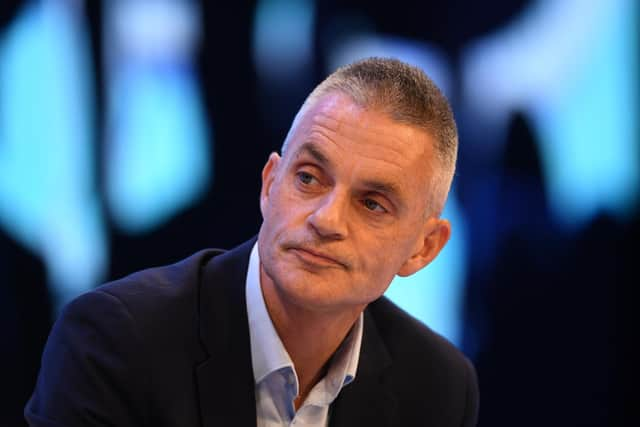The biggest threat is the BBC’s insistence on poking its fingers into every pie on the media menu - David Behrens
But in comparing the language used by the government to that of Goebbels, Lineker was deemed to have crossed a line. Ministers don’t like being called Nazis, even by implication.
And it was a cheap shot. A more astute analogy would have been with Britain’s response to Nazi oppression, not Nazism itself. Then, as now, the UK did everything it could to stem the flow of refugees, as did much of the rest of the world. History has not judged that episode kindly.
Advertisement
Hide AdAdvertisement
Hide AdThe BBC thought it could appease the government by taking Lineker off screen. But it was a knee-jerk reaction, for it soon discovered that he is possibly its most valuable asset. It should have known that already; it’s why they pay him so much more than everyone else.


Lineker is an honourable man whose opinion of the new refugee policy is by no means untypical, and he emerged from the row with dignity. That’s more than can be said for the corporation, whose ambiguous social media guidelines were the cause of an own goal so disastrous that it will have repercussions far beyond the loss of last weekend’s Match of the Day.
It had backed itself into a corner even before the first shot was fired. A few weeks earlier, the director-general, Tim Davie, had been smugly comparing his organisation to the cat that got the cream for pulling off – his words, not mine – the feat of making people happy with enforced licence fee payments. And the chairman, the banker Richard Sharp, was facing down calls to resign for helping Boris Johnson secure an £800,000 loan just before Johnson recommended him for the job.
Both of those were missteps that might be thought to have compromised the corporation’s neutrality. Could the same really be said about the humanitarian views of a pundit that are unconnected to his job? On the contrary, one of the reasons for Lineker’s popularity is that lots of people respect what he says. They see him as an intelligent, thoughtful commentator – a refreshing change from the vacuous ‘lifestyle’ presenters who infest so many of the BBC’s other programmes.
Advertisement
Hide AdAdvertisement
Hide AdThe whole fiasco is littered with inconsistencies. Why, for instance, should the BBC insist on Lineker being impartial off screen but not on? ‘Sorry, Ian, I’m not allowed to say Leeds United were rubbish this afternoon.’
And shouldn’t the same rules apply to every other celebrity who expresses a political view? If so, David Attenborough and Lord Sugar would be the first to go.
In capitulating first to the Conservatives and then to Lineker, the D-G managed to alienate almost everyone. Politicians on both sides of the House are now in uproar. And those viewers he thought were happy being made to pay their licence fees are now not so sure.
Even the staff are against him. The corporation’s journalists went on strike on Wednesday in protest at his cuts to local radio – though the lack of budget coverage seemed to bother viewers far less than the loss of Match of the Day.
Advertisement
Hide AdAdvertisement
Hide AdAnd the BBC’s in-house chamber choir, which has been going for 99 years and whose singers are all on the payroll, is lobbying the Culture Minister to save them from the axe.
That choir stands as a metaphor for the entire corporation at the moment. Is its venerability an asset or a liability?
But the biggest threat to the status quo remains the BBC’s insistence on poking its fingers into every pie on the media menu, even when the pies have been baked by someone else.
Its remit is to broadcast programmes on TV and the radio; not to promote podcasts, magazines and websites that compete unfairly with the commercial sector. Nor is it to conduct distorted debate on social media channels according to rules of its own devising. If it were, the motto outside Broadcasting House would have been updated to read, ‘Nation shall speak peace unto nation in 280 characters or less’.
Advertisement
Hide AdAdvertisement
Hide AdIt’s this simple: You can’t finance the organisation by a tax on owning a television set if its primary purpose is no longer to make programmes for that TV.
So who is left to fight for the licence fee? Will Tim Davie be the director-general on whose watch an archaic system of funding is finally modernised?
That depends on how long he lasts – and on whether he can overhaul his organisation’s hopelessly misplaced sense of priorities. On his record so far that seems unlikely.